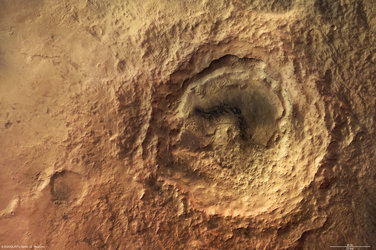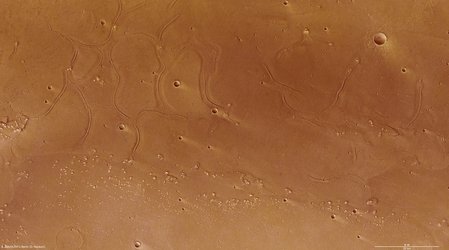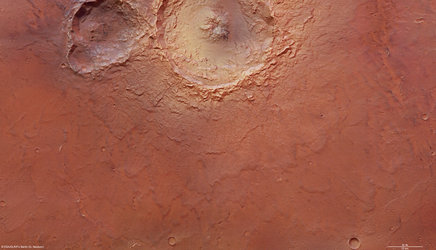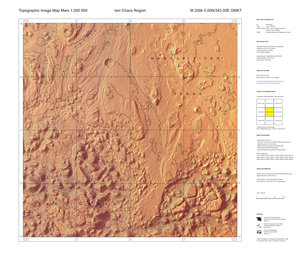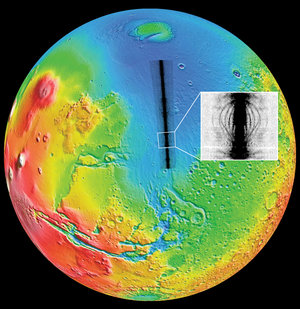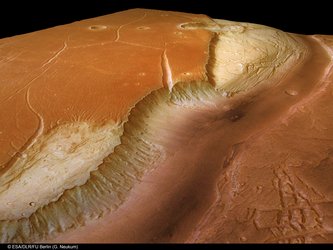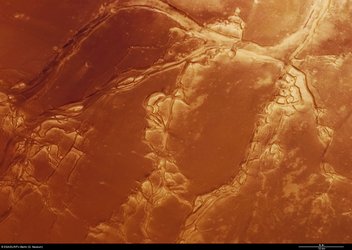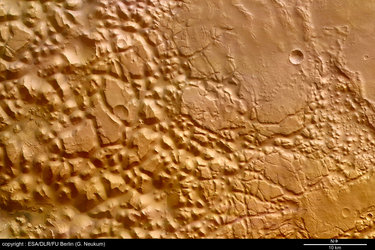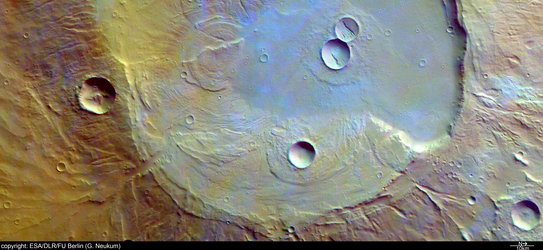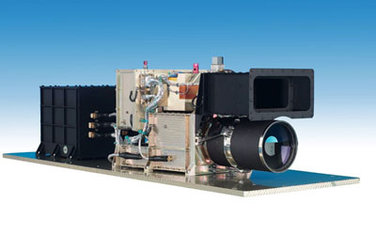Noctis Labyrinthus, labyrinth of the night
These images taken by the High-Resolution Stereo Camera (HRSC), onboard ESA’s Mars Express imaged the Noctis Labyrinthus region, the ‘labyrinth of the night’ on Mars.
The HRSC took these pictures on 25 June 2006 in orbit 3155, with a ground resolution of approximately 16 m/pixel.

Noctis Labyrinthus lies at approximately 6.5° south and 260° east. The Sun illuminates the scene from the north-west, top right in the image above.
The region is located directly on the western edge of Valles Marineris, the ‘Grand Canyon’ of Mars. The closely-spaced, deeply incised, smaller, labyrinth-like fractures are eye-catching.

Noctis Labyrinthus forms part of a complex graben-system. This system formed due to extensional tectonics. During the process, intense volcanism in the Tharsis region led to the formation of a bulge, resulting in tectonic stress. This caused the crust to thin out and form graben structures, which are elongated, trench-like features bounded by parallel normal faults. As one can clearly see in the context map, the upper portion of the martian crust in this area is largely fractured.

The scene in the picture exhibits parts of those graben structures that have 5000-m deep incisions. They are strongly eroded, and this can be seen from the debris at the bottom of the graben. Younger rock-formations can be seen on the upper-edge of the graben.

The sharpened colour image has been derived from the three HRSC colour channels and the nadir channel. The perspective views have been calculated from the digital terrain model derived from the stereo channels. The anaglyph image was calculated from the nadir and one stereo channel. The black and white high-resolution image was derived from the nadir channel, which provides the highest level of detail.

Special, stereoscopic glasses are required to view the anaglyph (3D) image.
For more information on Mars Express HRSC images, please read our updated FAQ (frequently asked questions).















 Germany
Germany
 Austria
Austria
 Belgium
Belgium
 Denmark
Denmark
 Spain
Spain
 Estonia
Estonia
 Finland
Finland
 France
France
 Greece
Greece
 Hungary
Hungary
 Ireland
Ireland
 Italy
Italy
 Luxembourg
Luxembourg
 Norway
Norway
 The Netherlands
The Netherlands
 Poland
Poland
 Portugal
Portugal
 Czechia
Czechia
 Romania
Romania
 United Kingdom
United Kingdom
 Slovenia
Slovenia
 Sweden
Sweden
 Switzerland
Switzerland



























